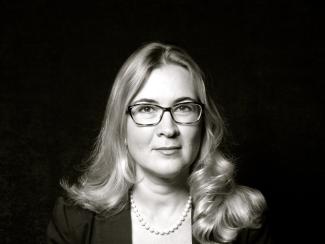War In Ukraine: Why Mariupol Is A Priority Target For Russia
Since the beginning of the Russian invasion, the port city of Mariupol, located on the Sea of Azov, has been of great strategic interest to Moscow. Vladimir Putin has made it a symbolic objective.

Since the start of the Russian invasion of Ukraine on February 24, Mariupol, in the east of the country, has been set on fire and bloodshed; all its buildings, in particular its theater and its maternity, bombarded; its inhabitants, deprived of water, food, electricity and heating. While Moscow announced a truce on Thursday March 31 to allow the evacuation of civilians, around 160,000 people (out of 450,000 inhabitants before the war) would still be stuck in this closed door, the scene of a “major war crime”according to the European Union (EU).
The port city of the Sea of Azov, besieged for more than a month – but not fallen into Russian hands – quickly became a priority target of the armed forces of the Russian Federation. Thursday, at 36and the day of the Russian military offensive, Mariupol was more than 90% destroyed, and the pressure was still far from weakening even though Moscow said on March 26 that it was concentrating its efforts on “the liberation of Donbass” and eastern Ukraine.
A city between Crimea and pro-Russian territories
Firstly, by virtue of its geographical position, Mariupol is a strategic issue for the Russian forces. His fall would undoubtedly be a turning point in Russia’s war in Ukraine.
- Control of the Ukrainian coast and the Sea of Azov
Located about a hundred kilometers south of Donetsk, the main city of the pro-Russian separatist territory of the same name, 350 km north of Crimea, annexed in 2014 by Russia, and about fifty kilometers from the Russian border, Mariupol presents geographical features that are of interest to Russians.
For Tatiana Kastouéva-Jean, researcher and director of the Russia/NIS Center of the French Institute of International Relations (IFRI), there was thus “a logistical facility” to attack the port city, due to its location “near the contact line between Russia and Ukraine”
Moreover, taking Mariupol would allow the Russians to control around 80% of Ukraine’s coast on the Sea of Azov, further isolating the country from the rest of the world.
In practice, however, “Russia already controls this sea, since it controls the only entrance: the Kerch Strait”, underlines Igor Delanoë, deputy director of the Franco-Russian Observatory, to Agence France-Presse (AFP). After the annexation of Crimea by Russia, the latter had built a bridge, in May 2018, spanning the strait, connecting the Crimean peninsula to Russian territory and thus surrounding the Sea of Azov.
If Russia finally took control of the Sea of Azov, “She won’t have[it] accountable to no one [et] She can put anything in it. concludes Alexei Malachenko, director of research at the Institute for the Dialogue of Civilizations, also quoted by AFP.
- Junction between annexed Crimea and pro-Russian separatist territories
Mariupol is, moreover, on the path of the armed forces rising from Crimea, and on that of the soldiers who come from the separatist territories – whose independence the Russian president recognized before the start of the invasion of Ukraine. .
Taking Mariupol would then allow the Russians to make the land junction between the two Ukrainian regions controlled by Moscow. The port city is, moreover, located in the oblast of Donetsk, territory which the pro-Russians claim, but which they have not succeeded in taking entirely.
From these separatist regions of eastern Ukraine to the Crimean peninsula – or even to Odessa – this territory retaken along the Sea of Azov and the Black Sea would also allow Vladimir Putin to recreate New Russia, a territorial subdivision of the Russian Empire at the end of the XVIIIand century.
Russians “would thus have liked to push this junction to Transnistria [région à cheval sur le sud-ouest de l’Ukraine et la Moldavie]develops Tatiana Kastouéva-Jean. But, with the setbacks suffered by the Russian army, that no longer seems feasible to me.
Mariupol, industrial and commercial lung
Due to its location by the Azov Sea, Mariupol was also an important industrial and commercial center before the war. If Russia took control of it, it would stifle a large part of the Ukrainian economy and contribute to further asphyxiate the population. The Russians have moreover “virtually wiped the city off the map” notes Tatiana Kastouéva-Jean.
[...]
A highly symbolic Russian victory
While Russian troops are struggling on the ground, the capture of Mariupol would be a powerful symbol, likely to motivate exhausted soldiers who can then be redeployed to other fronts. “Probably they want to make Mariupol an example, a range of what they are capable of” adds Tatiana Kastouéva-Jean.
- Revenge on a Russophile city that had already repelled Moscow
This is not the first time that Mariupolitains have defended their city against pro-Russian separatist forces. They had already taken them back in 2014, after the port city had briefly fallen into their hands. The capture of Mariupol would thus constitute a painful setback for the Ukrainians, with an emphasis on revenge for the Russians.
[...]
Beyond the coast, Moscow would also take control of this sea, open to the Black Sea, making it "a Russian inland sea," explains the researcher.
- Powerful propaganda tool around the objective of “denazification”
[...]
By taking Mariupol, the Kremlin will thus be able to boast of having eliminated the Azov battalion, and by extension of having “denazified” Ukraine, giving the Russian and Ukrainian population, its army and ultimately the world, a justification for this war which will have claimed thousands of lives.
By this yardstick, the capture of Mariupol is “became symbolically very important, more than preserving industrial facilities and even Russian-speaking populations” believes Tatiana Kastouéva-Jean.

Media:
Share






